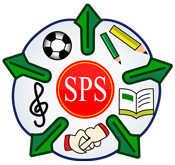Modern Foreign Languages – French
Intent, Implementation and Impact
Subject Key Objective Progression & Development by Year Groups
The following is a guide to help you understand your child’s progression through school.
All lessons are differentiated. This means teachers plan activities that enable the objective to be learned by all children including those who will find the objective challenging, those children who with hard work will secure good progress and those children who can tackle extra stretch and challenge in this subject.
Intent, Implementation and Impact
The curriculum is designed with our pupils and the Swinemoor community in mind.
It enables children to access and enhance their understanding of their home, their town and the wider community, developing their cultural capital and giving them opportunities and choices about their future and their impact as they progress through their school career and beyond.
This will help them become successful members of modern British society, preparing them for the challenges and opportunities.
French – Reading

KS2: “Read carefully and show an understanding of words, phrases and simple writing”
KS2:
Accent (T2)
Phoneme (T3)
Intonation (T3)
Children may demonstrate knowledge of some key points in French history, as well as modern French culture, buildings and food.
They may able to talk about different traditions in France, and how they differ to British traditions.
They may be able to name other French speaking countries, and demonstrate some understanding of the opportunities available when able to speak and read a modern foreign language.
What will be made, produced, performed, or published?
Children will develop their speaking, listening and writing skills throughout their KS2 career. They will read an appropriate French text, and be able to translate and demonstrate understanding of what has been read.
What knowledge will the children have embedded?
Children will be able to read aloud a French text, knowing what has been written and the English translation. Children will know key vocabulary and grammar in order to read a French text.
The children will recall French speaking countries. They will identify some aspects of French traditional culture and important dates in the French calendar.
What retention may be demonstrated?
Here are some example questions that may be used to assess children’s understanding.
KS2: How does this accent change the phoneme? Can you find the vocabulary that would be used to say… (specific phrase relating to text)?
Modern Foreign Languages – French Reading
Year 3
Pupils can read aloud in chorus, with confidence, from a known text.
Year 4
Pupils can follow a short text while listening and reading saying some of the text.
Year 5
Pupils can read and understand some of the main points from a text.
Year 6
Pupils can read aloud, with confidence and expression, in chorus and individually.

This collection of short films and resources will help you understand your child’s progression through school.
The curriculum film resource has been broken down by subject area initially and then by topic area.


